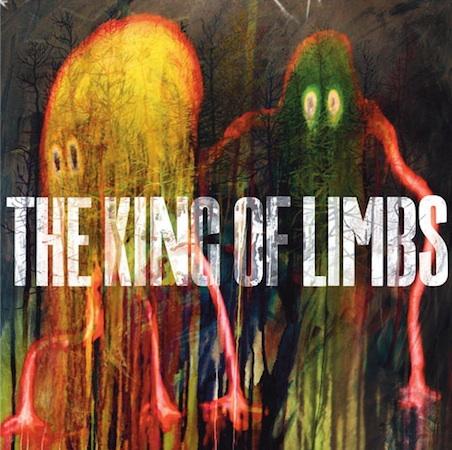 Radiohead has a way of throwing their fans off in a surprisingly good way. I’m referring to giving away “In Rainbows” for free on the internet, but I’m also thinking of dropping their new album “The King Of Limbs” a day early and almost keeping it a secret.
Radiohead has a way of throwing their fans off in a surprisingly good way. I’m referring to giving away “In Rainbows” for free on the internet, but I’m also thinking of dropping their new album “The King Of Limbs” a day early and almost keeping it a secret.
After acquiring the album, I listened to it on a laptop, which made me realize I needed to round up some fellow Radiohead fans and listen to it with some speakers, which wound up being a very good idea. Picking up on the subtleties of Radiohead’s music makes you realize why these guys are on a completely different planet in terms of the music they’re producing.
When I listened to “The King of Limbs,” my strongest feeling was that this album isn’t something to weigh against their other albums – namely “OK Computer,” which most people who are able to pick one seem to agree is their best. I do not necessarily endorse that view, and thus I intend to review this album as a piece of work with its own merits and downfalls regardless of Radiohead’s past successes.
The first track is called “Bloom”, and the song does indeed bloom from a delicate piano-and-drum opening into an intricately layered masterpiece. It serves as a brilliant intro to the rest of the album, which also could be said to bloom from the first song on.
“Morning Mr. Magpie”, the second song, is a little funkier. This one has an interesting balance between the openly threatening “You’ve got some nerve coming here” and the seemingly charming “Good morning Mr. Magpie, how are we today?” – which still has an unsettling undertone. Radiohead has a way of juxtaposing different feelings and producing a disconcerting tone that’s also somehow empowering, as though we were the ones making the demand “You stole it all, give it back.”
Next is “Little By Little”, which pelts the listener with layered percussion and a wary-feeling baseline. The way Yorke sings the chorus and stretches out certain words (“obligation, complication, routines and schedules, drug and kill you”) gives the song an ominous feel, and the line “little by little by hook or by crook, I’m such a tease and you’re such a flirt” sounds more like an accusation than a playful observation.
“Feral” could be this album’s toned-down answer to “Idioteque.” The fast-paced rhythm gives it a sense of urgency, which builds as the song progresses. Yorke’s singing is strictly for effect in this song, which is laced with synth and sporadic cuts of his voice. The resulting erratic sound of the song is complemented nicely by the continuous beat.
“Lotus Flower” is one of the album’s best songs lyrically. It deals with frustration (“There’s an empty space inside my heart and it won’t take root”; “I can’t kick the habit”), which evidently relates to a relationship. The metaphor of the lotus flower could be interpreted as sensual (“Slowly we unfurl as lotus flowers”; “Take the lotus flowers into my room”), a theory to which Yorke’s pleading voice lends itself.
“Codex” is this album’s melancholy piano ballad. Although the song itself may be about drowning one’s self in a lake, it’s hauntingly beautiful (like pretty much all of Radiohead’s melancholy piano ballads), incorporating horn music for an almost epic effect.
“Give Up The Ghost” serves as a gentle transition from the somber tone of “Codex” to the album’s last track. Yorke’s voice is especially spectacular on this song as mumbled background noise, a barely audible “Don’t haunt me, don’t hurt me”. The lyrics are simplistic but powerful, telling a sober tale of quiet acceptance.
The album’s final track is perhaps most striking in terms of its mood. Whereas almost every Radiohead song I’ve ever heard has been defined by a somber undertone, the band seems to have conquered its pessimism in “Separator.” Such an achievement may sound off-putting to fans (after all, what is Radiohead without their gloominess?), but rest assured this is one of the best songs on the album. Yorke sings “Like I’m falling out of bed from a long and weary dream, finally I’m free of all the weight I’ve been carrying” amid a consistent drum beat and an almost hopeful-sounding guitar, and his voice in the background singing “Wake me up” lends support to the notion that Yorke is no longer just bearing witness to the failings of the world, but recognizes that he is free of them.
Overall, the album has enough of its own substance to distinguish itself without standing in stark contrast to Radiohead’s other work. For the world of music, this album is revolutionary; for the world of Radiohead, this album is perhaps more of the same, although it’s certainly more of what we want as fans. At times the repetitiveness of the songs’ music and lyrics could be less-than-attractive for some listeners, but as with every work of Radiohead there are songs on “The King Of Limbs” that are brilliant enough to merit the ones that are maybe only really good.
It’s possible that Radiohead’s career really did reach its pinnacle with “OK Computer” and has been winding down ever since. However, if this album is close to the end, it contains (potentially) classic Radiohead songs and is worth a couple (thousand) listens.
On “Give Up The Ghost,” Yorke sings “I think I have had enough.” But don’t worry, Radiohead fans – as he kindly reassures us on “Separator,” “If you think this is over, then you’re wrong.” We will hopefully have more Radiohead, and until then, “The King Of Limbs.”









